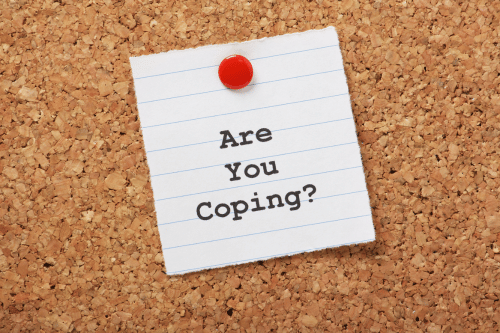Coping Skills for Teens: Managing Stress and Anxiety with Confidence
Understanding Teen Anxiety
Teens experience a wide range of emotions as they navigate school, relationships, and personal growth. Anxiety and depression often arise due to academic stress, adolescent stress, and emotional stress. While feeling anxious from time to time is normal, ongoing signs of anxiety may indicate a mental health condition. Without healthy coping skills, teens may struggle to manage stress levels and develop unhealthy coping skills that negatively impact their well-being.
Common Causes and Symptoms of Anxiety in Teens
Several sources of stress contribute to anxiety in kids and teens. Academic stress, social pressures, relationships with family, and personal challenges can all increase emotional stress. Teens with acute anxiety often experience physical sensations like a racing heart rate, difficulty breathing, muscle tension, or digestive issues. Emotional symptoms include excessive worry, irritability, trouble concentrating, and avoidance of anxiety-provoking situations.
Importance of Healthy Coping Skills
Healthy coping mechanisms allow teens to handle challenging emotions and build a balanced teen life. Without healthy strategies, teens may develop poor coping skills such as avoidance, social withdrawal, or unhealthy distractions. Learning teen coping skills helps teens respond to difficult situations with confidence while improving physical health and emotional well-being.

Types of Coping Skills for Teens
Skills for teens include a variety of relaxation techniques, actionable coping skills, and stress management skills. These techniques provide effective ways to deal with stressful situations while fostering a balanced life.
1. Mindfulness and Relaxation Strategies
Relaxation techniques such as deep breathing, progressive muscle relaxation, belly breathing, and abdominal breathing activate the relaxation response. These methods slow the breathing rate, lower the heart rate, and reduce muscle tension. Blow bubbles, hold an ice cube, or use a stress ball to focus on the present moment. Watching an inspirational movie can also provide relief from strong emotions.
2. Physical Activity and Exercise
Regular exercise is an essential part of healthy coping. Activities like running, dancing, or stretching promote physical health while reducing stress levels. Spending time in nature helps regulate emotional response and provides an alternative to video games for stress relief. Simple actions like completing household chores can also offer a sense of accomplishment and structure.
3. Creative Expression and Emotional Release
Creative expression provides a positive outlet for difficult emotions. Art, music, and writing allow teens to express thoughts without feeling overwhelmed. Cool DIY ideas such as painting, sculpting, or making vision boards help process emotions. Keeping a book helpful or a book comforting on hand can also offer inspiration.
4. Structured Problem-Solving Strategies
Approaching problems with practical strategies helps teens develop emotional intelligence and handle stress into strength. Journaling, setting small goals, and using positive affirmations build self-confidence. Discussing anxiety discussion questions with a trusted adult or friend can provide insight into emotional challenges.
5. Building Social Support Networks
Strong social connections help teens manage stress. Open communication with family media plan tool and quality time with loved ones reinforce a balanced teen life. Video chat with supportive friends or joining a community group can provide emotional reassurance.

Professional Help and Therapy Options
For teens experiencing mental health concerns or a mental health crisis, seeking support from mental health professionals is important. Mental health services such as adolescent therapy provide effective treatment options. Online therapy, therapy via messaging, and in-person therapy offer flexible ways to receive care. Techniques like dialectical behavior therapy (DBT) teach emotional regulation, while FDA-approved medication for anxiety may be recommended by health care providers in severe cases.
Role of Parents and Caregivers
Parents and caregivers play a key role in helping teens develop healthy coping strategies. Encouraging healthy habits such as exercise, religious coping, and active coping promotes emotional balance. Parents can model healthy coping behaviors by practicing relaxation strategies themselves. Creating a supportive environment that acknowledges emotional triggers prevents teens from falling into the anxiety trap cycle.
Integrating Coping Skills into Everyday Lives
To make healthy coping mechanisms a habit, teens should incorporate effective strategies into their daily routine. Practicing relaxation response techniques before bed, setting realistic goals, and using stress management skills help build emotional resilience.
Conclusion
Coping with anxiety with ease is possible with the right healthy coping skills. Teens who learn to manage stress through healthy strategies can handle challenges with confidence and maintain a balanced teen life. Whether through deep breathing exercises, physical activity, creative expression, or professional support, every teen can find skills for teens unleashed to navigate life’s ups and downs successfully.









